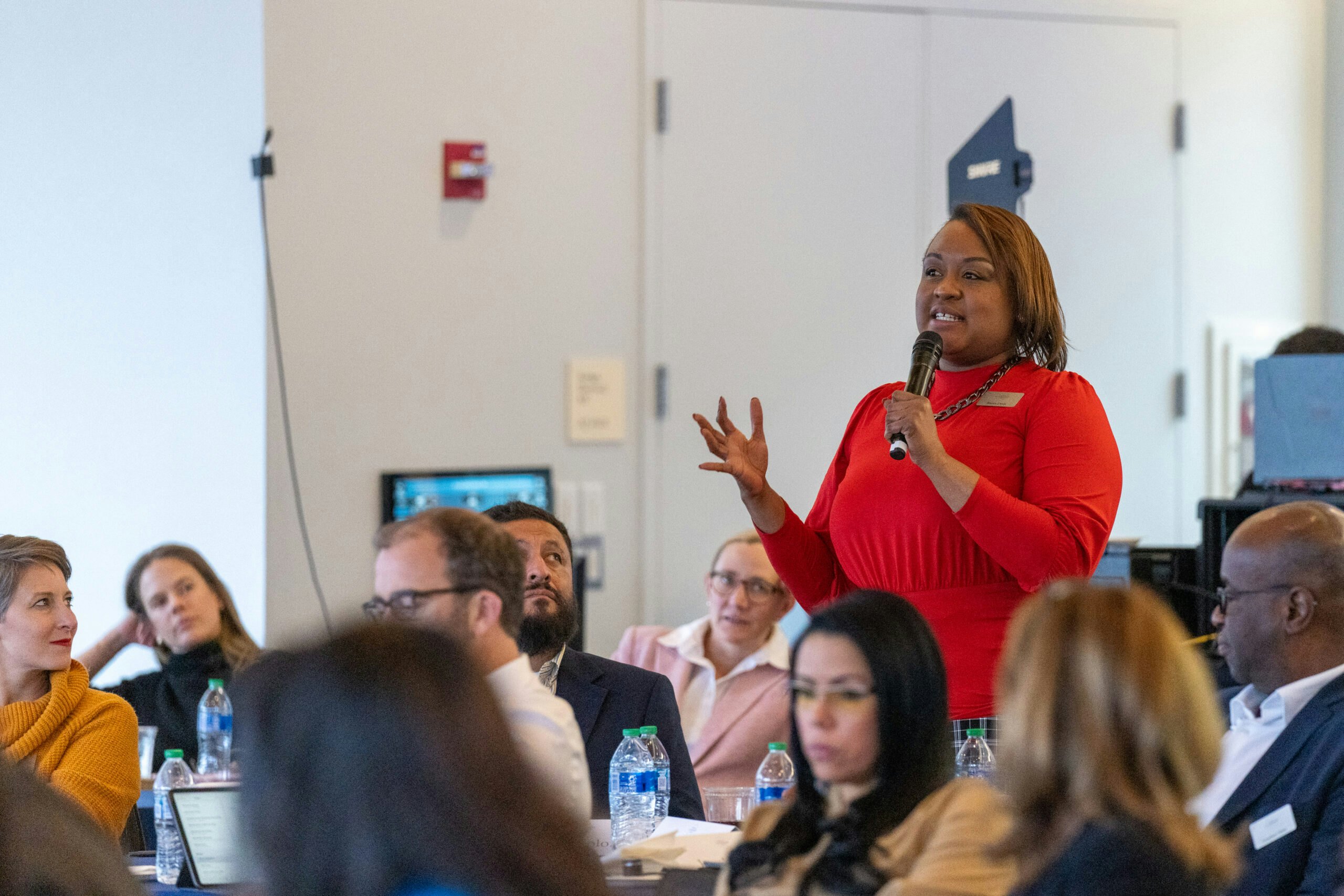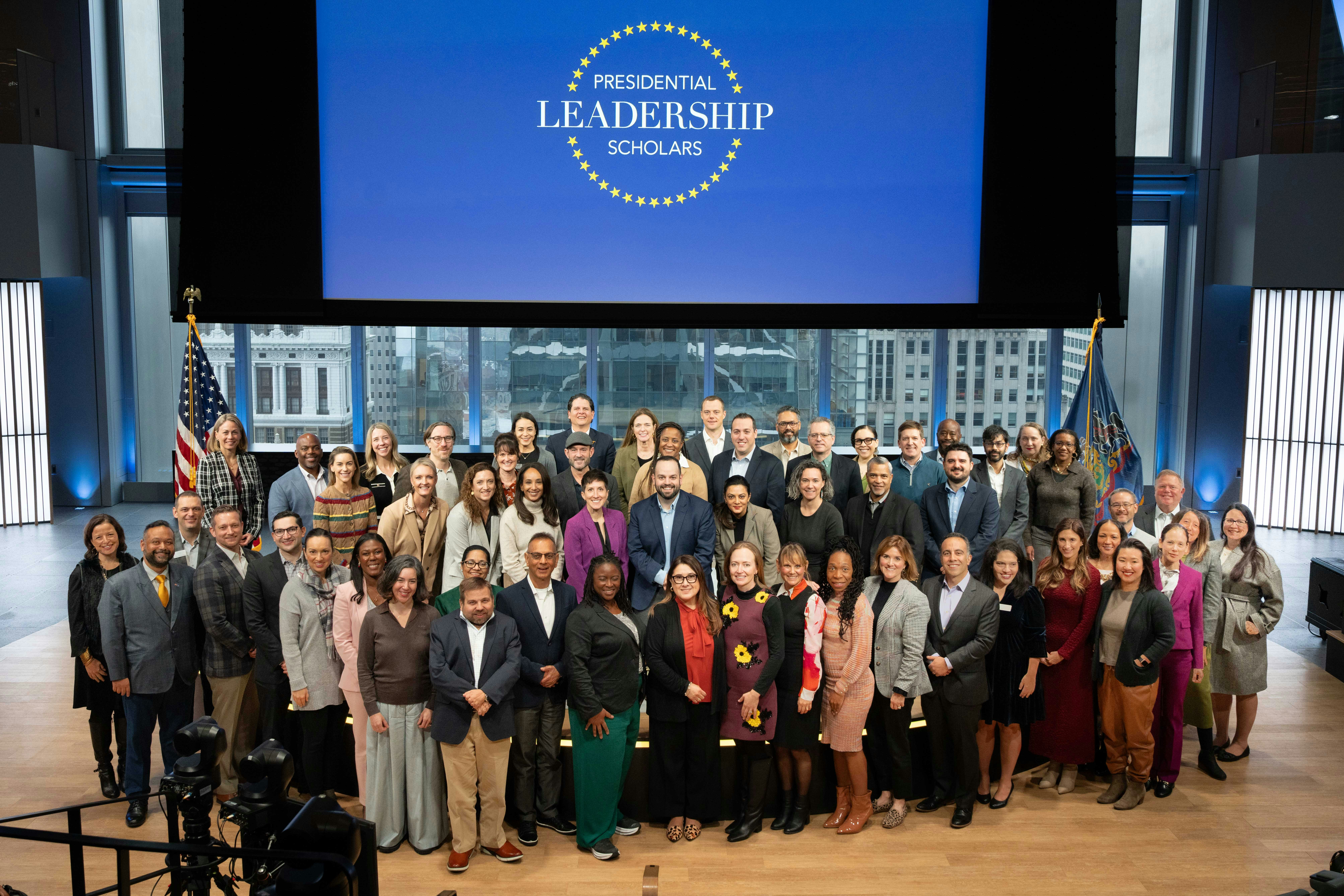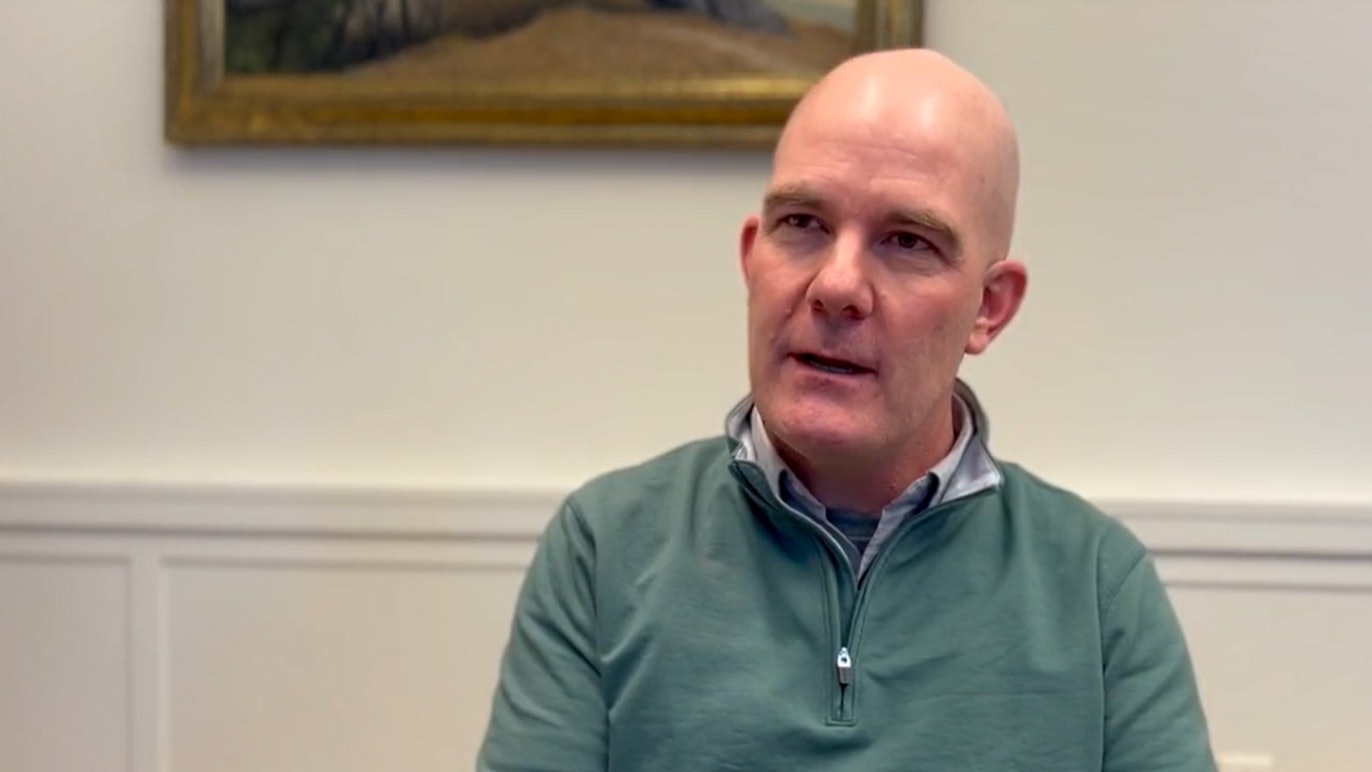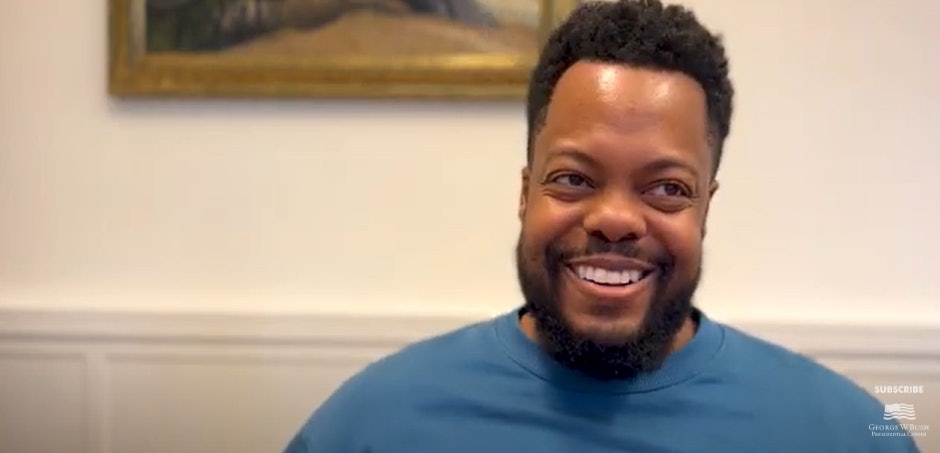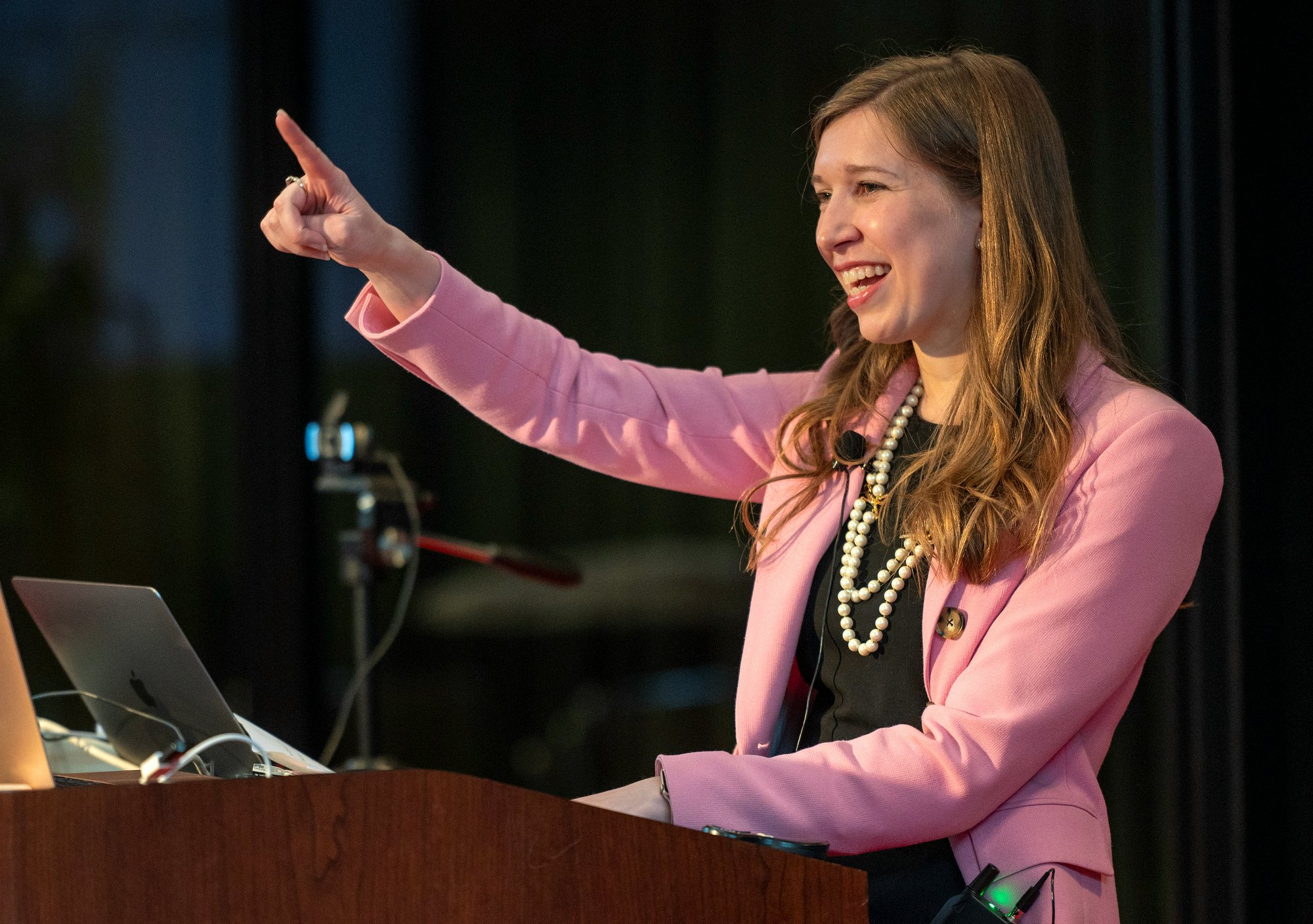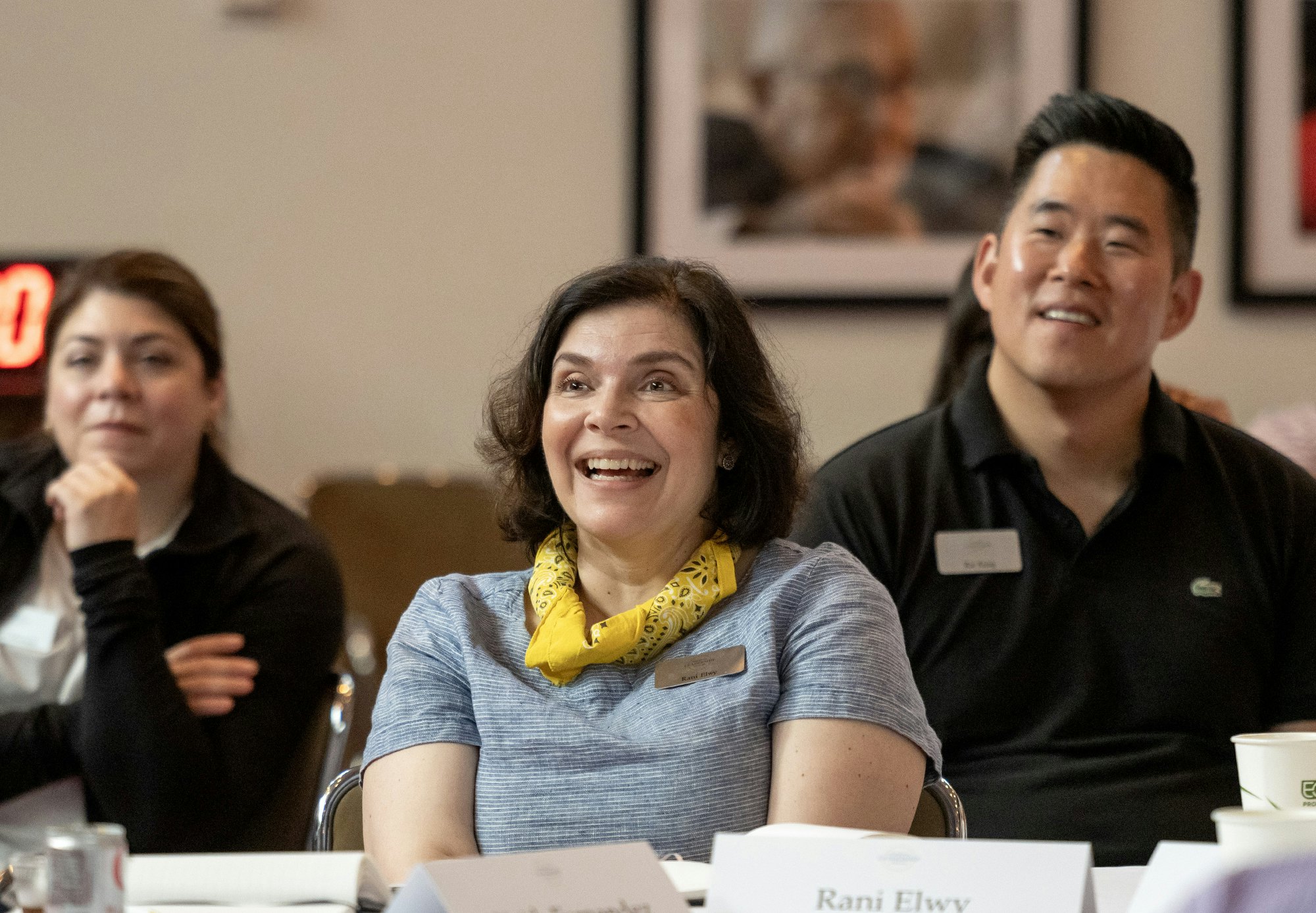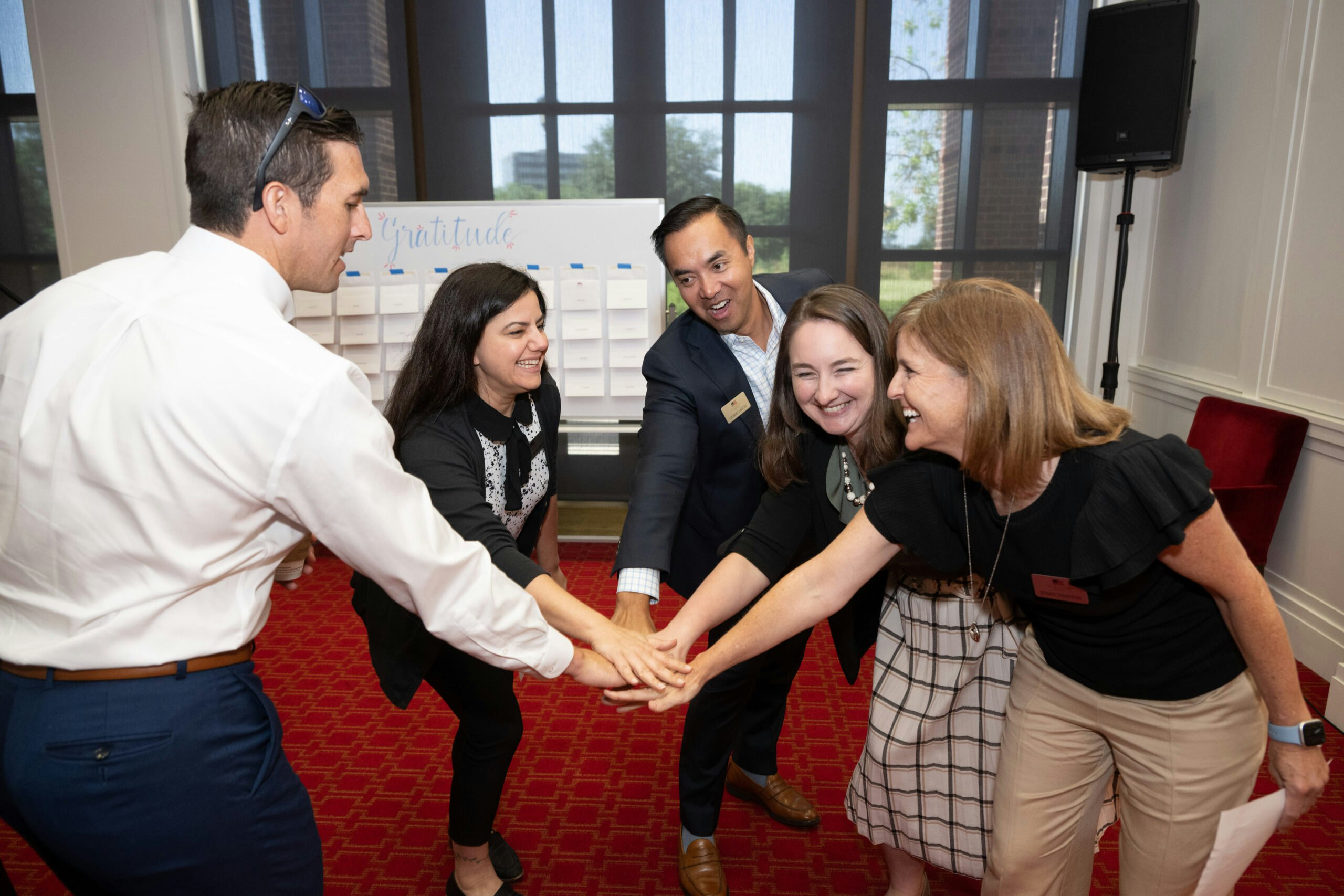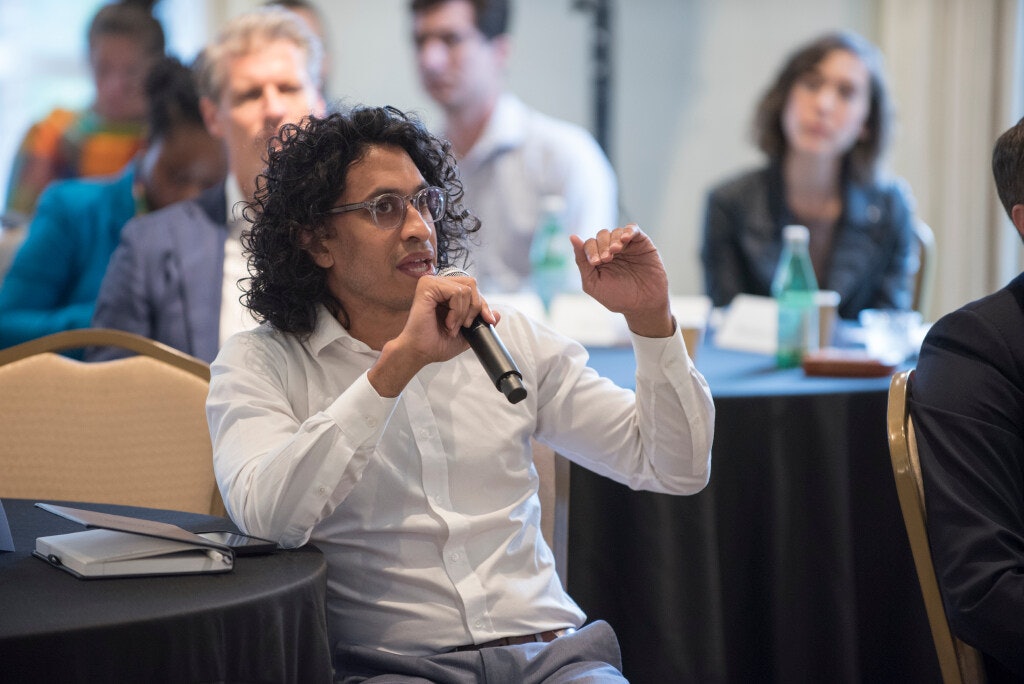We get an update on the impact her nonprofit, Nomi Network, is making and the lessons she learned from her time as a Scholar.
Diana Mao, a 2015 Presidential Leadership Scholar, is the President and Co-founder of Nomi Network, a nonprofit organization dedicated to economically and socially empowering survivors of human trafficking.
Diana gave us an update recently about the impact Nomi is making, lessons learned from her time as a Scholar, and who’s inspiring her this International Women’s Day.
Since we last talked in 2015, can you give us an update on the Nomi Network and your work to decrease the child labor footprint?
Nomi Network has reached several significant milestones since 2015. We’ve continued to make progress towards decreasing the child and forced labor footprint while strengthening human rights on the ground in India and Cambodia.
In 2016, more than 1,000 women and girls in Cambodia and India combined were impacted through our economic empowerment programs. In Cambodia, after years of planning, we launched the Nomi International Fashion Training (NIFT) program in Phnom Penh.
In 2016, more than 1,000 women and girls in Cambodia and India combined were impacted through our economic empowerment programs.
NIFT functions as a fashion incubator. Trafficking survivors and other women at risk are getting hands-on training from industry experts to improve their design, technical production, and business skills. This prepares them for upward mobility in Cambodia’s growing fashion industry.
In India, we experienced fallout from the new de-monetization policy that left millions of people with unusable currency overnight. The economic chaos delayed our expansion into a new site, but eventually we were able start a new cohort of women from a red-light district in Northern India.
Most of these women were born into brothels and are from the lowest castes. Without a program like ours, they’d have few opportunities to become skilled workers or have a formal job.
We also experienced tragedy in India. Our trainee Rita’s 12-year- old son, Tarun, was murdered after standing up to a man who had been harassing his older sister. After Tarun’s body was discovered, Nomi’s lawyer and program manager went to the police station with Rita to represent her and assist with filing charges against the alleged perpetrators.
In the end, each man was charged with Tarun’s murder as well as violations of the Arms Act, the Protection of Children from Sexual Offence Act, and Sexual Harassment, and sent to prison. This a huge win in Bihar, the most lawless state in India, where women and low-caste people are often powerless in the justice system.
Nomi continues to drive the conversation about ethical sourcing and supply chain issues. Last July we partnered with Concordia Campaigns to convene a Labor Lessons Roundtable to identify industry-transferrable lessons aimed at eradicating labor trafficking and slave labor worldwide.
Participants included leading industry representatives, senior government officials, and human rights organizations with deep knowledge and expertise in supply chain standards. The group’s findings were captured in a white paper entitled Labor Lessons: Supply Chain Standards for Sustainable 21st Century Business. The paper highlights challenges industries face in securing an ethical supply chain and examples of anti- trafficking successes, along with recommendations and practical steps for replicating those achievements.
In September, as part of Concordia Annual Summit’s sessions on the Campaign Against Labor Trafficking, I led a roundtable discussion of experts to explore the topic Translating Lessons Across Industries. In October, Nomi’s Cambodia office teamed up with H&M’s global sustainability group to present a workshop on supply chain sustainability. And in late 2016, Nomi Network secured a partnership with a large cosmetic company that will be announced this year
What lessons in leadership from your time as a Scholar have you been able to apply to your work now?
I’m applying leadership frameworks to help me think strategically and prioritize key relationships to develop. For example, I’m now focusing on stakeholders who have high importance and are supportive. This has been extremely effective in helping me target brands that already have an interest in decreasing their child and forced labor footprint, instead of brands that could not care less about who makes their products.
The Lyndon B. Johnson module also really challenged me to think about using different persuasion tactics. LBJ leveraged many different types of persuasion such as pressure, threats, warnings, and demands. Using these tactics, he was able to get the Civil Rights Act passed– one of the greatest achievements of our time.
By nature, I am collaborative and lean towards inspirational appeals. However, this type of persuasion has not been particularly effective when it comes to engaging brands. They answer to shareholders as opposed to stakeholders. So, I have traded currencies and am taking more of a position-related approach, leveraging my spheres of influence and visibility when approaching brands.
In addition, I was blown away after meeting President George W. Bush, President Clinton, and members of their administrations. From President Bush, I learned that leaders must focus on key decisions and ignore the mundane to avoid decision fatigue.
I thought about my own habits, such as wearing the same outfits over and over even though I have a closet full of vibrant clothing. That made sense when I heard CEOs have been known to wear the same blue pinstripe suit or white shirt.
From President Clinton, I learned about the importance of reminding people of the “why” — the vision of what we’re trying to achieve. As people get caught up in tasks, they need occasional refreshers to be inspired to think outside of the box. That was a key factor in President Clinton’s ability to connect with his team.
How has the PLS Network helped you to advance the cause of the Nomi Network?
Being part of the inaugural PLS class with 59 other like-minded, mission-oriented individuals who desire to address the most pressing challenges of our time has been life-changing for me. The most vital part of the network has been the close ties we’ve formed that cannot be translated on paper.
Being part of the inaugural PLS class with 59 other like-minded, mission-oriented individuals who desire to address the most pressing challenges of our time has been life-changing for me. The most vital part of the network has been the close ties we’ve formed that cannot be translated on paper.
As a leader, it can be extremely lonely at times, but when I connect with a fellow Scholar, there is a mutual understanding and shared responsibility that we are in places of influence to make a greater impact in this world. For some, like myself, it can be daunting, but we are each other’s biggest cheerleaders.
Within this network I have people who check in on me when I return from an international trip, making sure I am back safely and have someone to process with. Several PLS Scholars have joined my advisory board and one Scholar’s spouse is on my board of directors, and has proven to be a tremendous asset to my organization.
The most inspirational moment for me was when a PLS Scholar and a staff member told me their daughters have been enlisted to raise awareness about companies that are not transparent and not interested in decreasing their child and forced labor footprint. That showed me the PLS network is not just about us, but the lives we are impacting for generations to come.
As we mark International Women’s Day this week, who inspires you the most?
Two women who inspire me most are my grandma and my mentor, Kathy Ireland. My grandma, who is over 100 years old, grew up privileged in China, with the best opportunities and education. In fact, she was best friends with Vera Wang’s mother and aunt—they all went to the same boarding school. However, things took a drastic turn: first the Japanese Occupation and then the rise of Communist China. Her family lost it all, and she found herself as a refugee in Hong Kong. No matter how little or how much she had, she always gave it all away.
Eventually she ended up in the United States and sponsored her children to join her and start a new life as immigrants. She always volunteered whenever there was a need at church and ended up serving as a deacon. My grandma is an empathetic leader, inspiring others around her to serve. As a child, I recall her inviting a homeless man she met at the supermarket to our home for dinner. That is the kind of leadership we need today – one that is not afraid of the unknown and embraces people where they are.
I had the privilege of meeting Kathy Ireland when I was in college. She believed in me when no one did, by donating to my effort to raise funds to rehabilitate child soldiers in Northern Uganda. We kept in touch, and back in 2009 when I was in my early 20’s starting Nomi Network, she was the first person I called for advice.
She shared with me the humble beginnings of her billion-dollar company – a story of perseverance and not taking no for an answer. Kathy was approached by a marketer who wanted an endorsement on his socks, but instead she convinced him to partner with her to launch Kathy Ireland socks. They went door to door pursuing customers, and heard a lot of no’s, until a major sports shop gave them their first order. That was the start of Kathy Ireland Worldwide – a billion dollar company.
Hearing her share that story when I first started Nomi Network has been instrumental. I often feel like a door-to-door salesman, and I don’t even have a product. In fact, most people don’t want to hear about fighting human trafficking and empowering women in far off places. Having women like Kathy to look up to, as well as encourage me, with occasional notes and text messages has been both humbling and catalytic.


